A Brief History of Istanbul - not Constantinople... or Byzantium
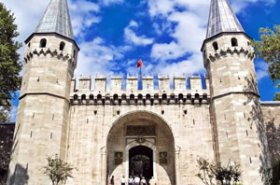
Topkapı Palace
The Topkapı Palace or the Seragliois a large palace in Istanb ... read more
The Topkapı Palace or the Seragliois a large palace in Istanbul, Turkey, that was one of the major residences of the Ottoman sultans for almost 400 years (1465–1856) of their 624-year reign.
As well as a royal residence, the palace was a setting for state occasions and royal entertainments. It is now a museum and as such a major tourist attraction. It also contains important holy relics of the Muslim world, including Muhammed's cloak and sword. The Topkapı Palace is among the monuments contained within the "Historic Areas of Istanbul", which became a UNESCO World Heritage Site in 1985, and is described under UNESCO's criterion iv as "the best example[s] of ensembles of palacesof the Ottoman period.

Blue Mosque
The Sultan Ahmed Mosque or Sultan Ahmet Mosque (Turkish: Sulta ... read more
The Sultan Ahmed Mosque or Sultan Ahmet Mosque (Turkish: Sultan Ahmet Camii) is a historic mosque in Istanbul. The mosque is popularly known as the Blue Mosque for the blue tiles adorning the walls of its interior.
It was built from 1609 to 1616, during the rule of Ahmed I. Its Külliye contains a tomb of the founder, a madrasah and a hospice. The Sultan Ahmed Mosque is still popularly used as a mosque.
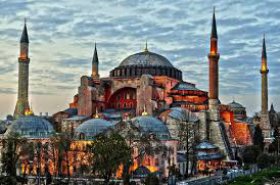
Hagia Sophia
Hagia Sophia is a former Christian patriarchal basilica (churc ... read more
Hagia Sophia is a former Christian patriarchal basilica (church), later an imperial mosque, and now a museum (Ayasofya Müzesi) in Istanbul, Turkey. From the date of its construction in 537 until 1453, it served as an Orthodox cathedral and seat of the Patriarch of Constantinople, except between 1204 and 1261, when it was converted to a Roman Catholic cathedral under the Latin Empire. The building was a mosque from 29 May 1453 until 1931. It was then secularized and opened as a museum on 1 February 1935
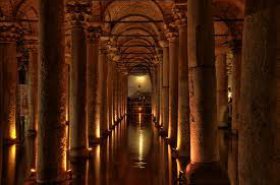
Basilica Cistern
The Basilica Cistern is the largest of several hundred ancient ... read more
The Basilica Cistern is the largest of several hundred ancient cisterns that lie beneath the city of Istanbul (formerly Constantinople), Turkey. The cistern, located 500 feet (150 m) southwest of the Hagia Sophia on the historical peninsula of Sarayburnu, was built in the 6th century during the reign of Byzantine Emperor Justinian I.
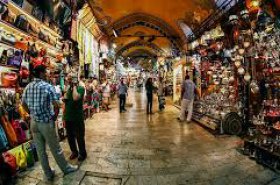
Grand Bazaar
The Grand Bazaar in Istanbul is one of the largest and oldest ... read more
The Grand Bazaar in Istanbul is one of the largest and oldest covered markets in the world, with 61 covered streets and over 3,000 shops which attract between 250,000 and 400,000 visitors dailyIn 2014, it is listed No.1 among world's most-visited tourist attractions with 91,250,000 annual visitors.
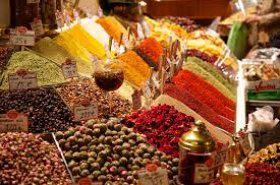
Spice Market
There are several documents suggesting the name of the bazaar ... read more
There are several documents suggesting the name of the bazaar was first "New Bazaar". The building was endowed to the foundation of the New Mosque, and got its name "Egyptian Bazaar" (Turkish: Mısır Çarşısı) because it was built with the revenues from the Ottoman eyalet of Egypt in 1660. The word mısır has a double meaning in Turkish: "Egypt" and "maize". This is why sometimes the name is wrongly translated as "Corn Bazaar". The bazaar was (and still is) the center for spice trade in Istanbul, but in the last years more and more shops of other type are replacing the spice shops.
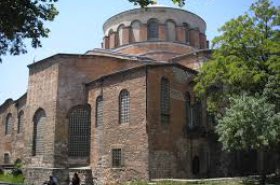
Hagia Eirene Church
Hagia Irene or Hagia Eirene (Greek: Ἁγία &Epsil ... read more
Hagia Irene or Hagia Eirene (Greek: Ἁγία Εἰρήνη, "Holy Peace", Turkish: Aya İrini), sometimes known also as Saint Irene, is an Eastern Orthodox church located in the outer courtyard of Topkapı Palace in Istanbul, Turkey. It is open as a museum every day except Tuesday.






